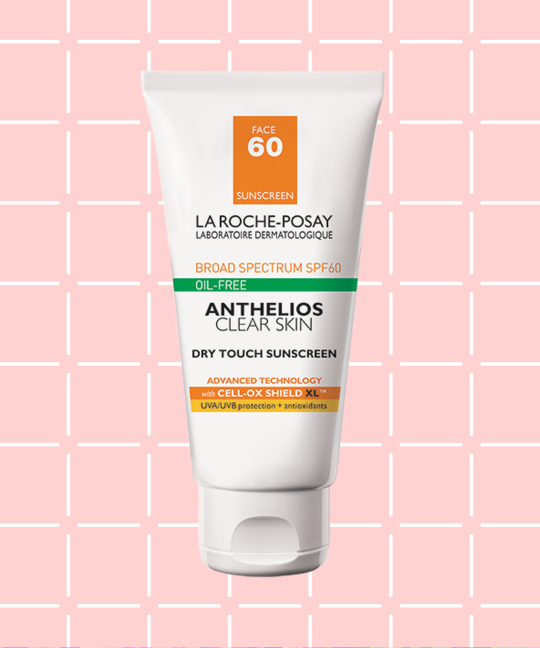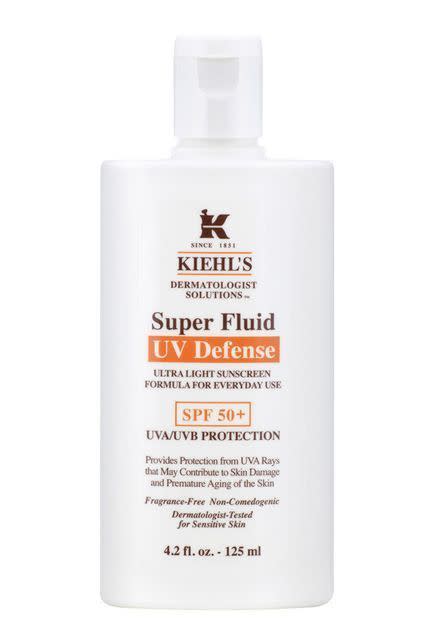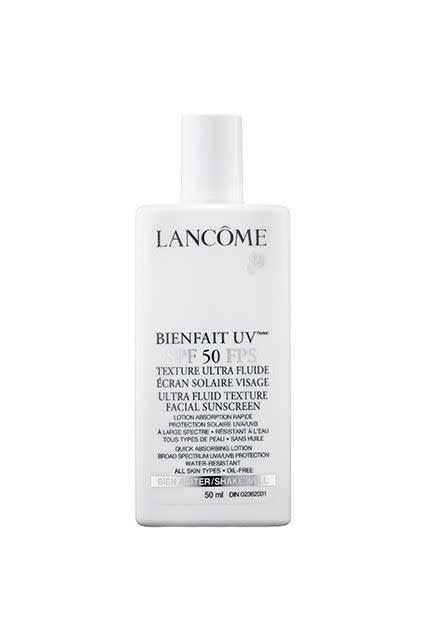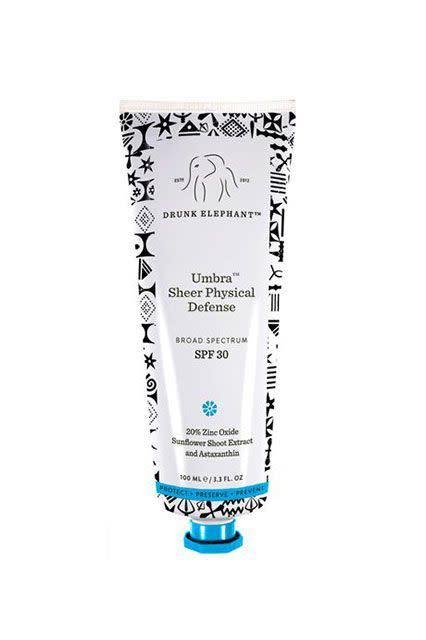The Once-&-For-All Guide To SPF

Whether or not you actually do it, you know that you should be wearing sunscreen all the time — not just in the summer. It is, without a doubt, the best thing you could do for your skin.
Related: The Skin Mistake You Shouldn’t Make
However, aside from that hard-and-fast rule, there are a lot of gray areas when it comes to SPF. How often should you reapply? What’s the difference between chemical and physical sunscreens? Is the SPF in your makeup really enough?
Related: What You Really Need To Know About Botox
Luckily, we’ve decided to clear things up once and for all. We tapped two dermatologists —Alysa Herman, MD, and Zein Obagi, MD — to talk about all things SPF. Have a big question? We’ve probably answered it ahead. Click through — and then slather thoroughly. Your skin will thank you.

Do you really have to wear SPF every day?
Both of our experts answer with a resounding yes. “People think that if you can’t see the sun outside, you’re not going to get burned,” Dr. Herman says. “Rays still penetrate clouds.”
Dr. Obagi agrees: “You will most likely be exposed to the sun either by being outside, in the car, or by a window,” he says, adding that all of this sun exposure can lead to nasty side effects. “Sun exposure can damage multiple layers of your skin, leading to discoloration, redness, damaged texture, wrinkles, and skin cancer.“
Related: What Going Paleo Did To My Body
Dr. Herman adds that cumulative sun damage can cause cancer, so it’s important to wear SPF daily. "I tell patients to keep sunscreen near their toothpaste as a reminder,” she says.
Kiehl’s Super Fluid UV Defense SPF 50+, $38, available at Kiehl’s.

What is the minimum SPF you should wear?
“The American Academy of Dermatology recommends broad spectrum of SPF 30 or higher, which blocks about 97% of the sun’s rays,” Dr. Obagi says. And while the number is important, don’t even think about reaching for a formula without “broad spectrum” printed on the label, which means that the sunscreen protects against both UVA and UVB rays. (Very important!)
Related: What Female-Directed Porn Looks Like
Lancôme Bienfait UV SPF 50+ Super Fluid Facial Sunscreen, $39, available at Sephora.

Is there a difference between SPF 30 and SPF 100?
You know those people who slather on SPF 100? According to Dr. Herman, they might as well be putting on SPF 30. “You only get a minimal jump between SPF 30 and SPF 100,” she says. “It’s about a 3-to-4% increase."
Related: Glow International With These Asian Beauty Products
Supergoop! Antioxidant-Infused Sunscreen Mist with Vitamin C, $19, available at Birchbox.

How often do you really need to reapply your sunscreen?
This totally depends on what you’re doing during the day. According to Dr. Herman, if you work indoors, or will be inside all day, reapplication isn’t really necessary. Just "make sure you’re covering all of your exposed areas” before leaving your place, she says. “And make sure you apply it before your makeup. It’s your first line of defense.”
Related: How To Make Your Eyes Look HUGE
However, if you’re going to be outside, bring your sunscreen along so you can reapply. “You should reapply sunscreen after any water activity, after sweating, getting a massage, or any other activity that may compromise your layer of sunscreen,” Dr. Obagi says. Keep in mind that sunscreen breaks down after two hours no matter the SPF value, so plan accordingly.
La Roche-Posay Anthelios Clear Skin Dry Touch Sunscreen, $20, available at La-Roche Posay.

What is the difference between physical and chemical SPFs?
“A physical sunscreen reflects the sun’s rays off the skin,” Dr. Herman says. “They’re typically made of minerals, like zinc, and they sit on top of the skin. They don’t absorb, which is why a lot of people who fear chemicals prefer them. They think they’re safer.”
Chemical sunscreens, on the other hand, are absorbed into the skin. “They contain carbon compounds that are made in a laboratory,” Dr. Obagi says. Instead of reflecting the sun’s rays, they actually absorb them.
“Some say that chemical sunscreens are a little more effective because they penetrate, but that hasn’t been proven,” Dr. Herman says. But she does stress that both are perfectly safe for use. “People with sensitive skin, however, may find they prefer physical sunscreens, because they’re less irritating.”
Translation: It’s really about personal preference — either type will protect you as long as it’s broad-spectrum and SPF 30 or above!
Drunk Elephant Umbra Sheer Physical Defense, $38, available at Sephora.
For more SPF-related musts, visit Refinery29.
By: Maria Del Russo
